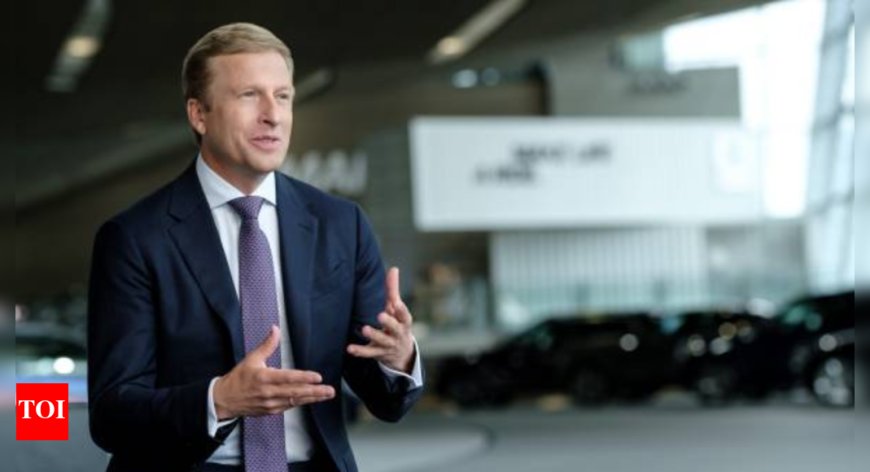BMW CEO tells how the company was right on 'Tesla trend', unlike Mercedes, Volkswagen, and Volvo
BMW CEO Oliver Zipse asserts his company's cautious EV strategy is succeeding as rivals scale back ambitious targets. Zipse highlights BMW's multi-drivetrain approach, including combustion engines and hybrids, as superior to solely focusing on EVs.

BMW CEO Explains Company's Success on 'Tesla Trend', Differentiating from Rivals
Breaking News, Daily Updates & Exclusive Stories - theoddnaari
This report is brought to you by Priya Sharma and Maya Patel, Team theoddnaari.
Introduction
In a recent interview, BMW CEO Oliver Zipse shared insights into the company’s strategy that has positioned it favorably in the ever-evolving electric vehicle (EV) market. As competitors like Mercedes, Volkswagen, and Volvo grapple with their ambitious targets that are now being scaled back, Zipse emphasized that BMW's cautious yet calculated approach to EVs is yielding successful results.
Cautious Steps Toward EV Success
Oliver Zipse pointed out that while other automakers plunged headfirst into electrification, BMW took a more measured route. Instead of relying solely on electric vehicles, BMW has developed a multi-drivetrain strategy that encompasses combustion engines and hybrid models. This diversification has allowed the company to stay afloat in challenging market conditions.
The shift among competitors toward revisiting their EV targets can be attributed to numerous factors, including production challenges and evolving consumer preferences. Zipse believes that this adaptability is what sets BMW apart, as they focus on long-term sustainability rather than short-term trends.
Multi-Drivetrain Approach: A Game Changer
BMW's multi-drivetrain approach is not merely a stopgap measure; it reflects an understanding of market demands and consumer choices. By catering to various segments of the market—from traditional engines to hybrids and fully electric vehicles—BMW has appealed to a broad audience. This is essential in a market where consumer trust in EVs fluctuates based on infrastructure developments and performance perceptions.
Zipse’s assertion that BMW’s strategy is superior to the uni-dimensional focus on EVs is underscored by the trend of rising manufacturing costs and the shifting landscape of regulatory policies. Unlike rivals, BMW's balanced approach has provided a safety net that ensures continued profitability without alienating traditional buyers.
Conclusion: The Road Ahead for BMW
The conversation around EVs is not just about technology; it's about foresight and market readiness. As BMW continues to carve out its position within the automotive landscape, their strategy will be closely observed. The adaptability shown by BMW under Zipse's leadership suggests a company well-prepared for an electrified future, regardless of the hurdles its competitors face. With a solid foundation in multi-platform powertrains, the auto giant aims to navigate through the ever-evolving automotive market while bringing innovation at every turn.
For more updates, visit theoddnaari.







